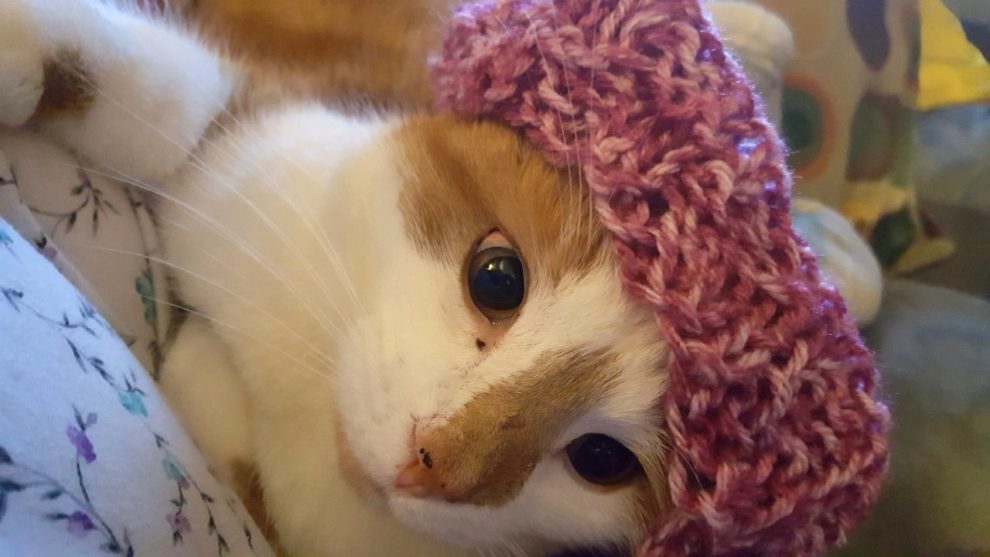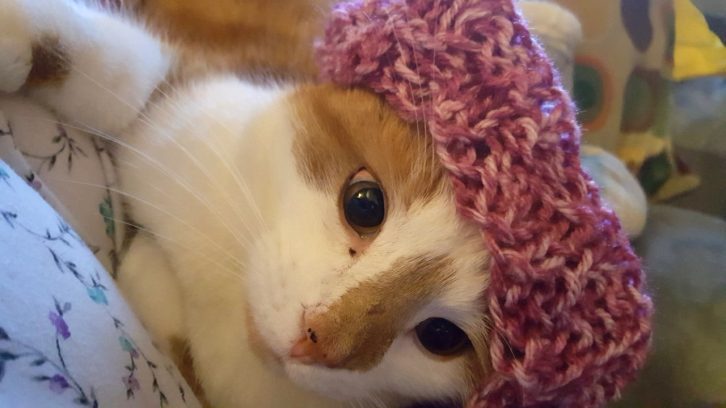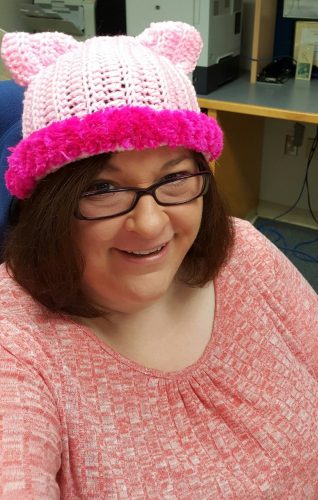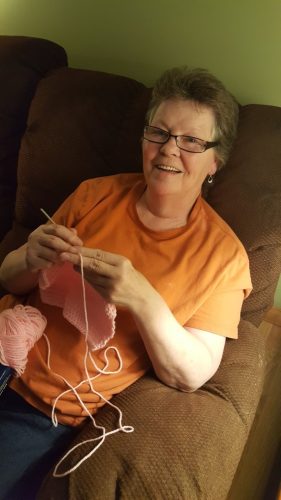Activism
N.S. women are making ‘pussyhats’ to stand up to Trump
A sea of pink will be rallying for women’s rights on Saturday

caption
Cinnamon wearing Pussyhat
caption
Cinnamon wearing a “pussycat”Halifax women are eager to get their pussyhats on.
The municipality will host one of the sister marches for the Women’s March on Washington, on Saturday, Jan. 21 in front of Halifax City Hall. The international march falls on the day after Donald Trump’s inauguration, when he becomes the 45th president of the United States.
“People say ‘that’s the States, there’s nothing that we can do about here,’” says Dawn Ferris, a co-chair of the event in Halifax. “Yes, he’s going to be president but his hatred, his rhetoric of division, his fear mongering, we need to make sure that doesn’t come to Canada. Our culture is inundated with American culture.”
The Halifax event has been changed from a march to a rally, to ensure that anyone with a mobility issue is able to participate.
Local women are also joining women in the United State by crocheting and knitting pink toques with cat ears to visually represent their support at the rally. They call the headwear the “pussyhat.”
The hat is meant to be a stand against Trump’s “grab them by the pussy” quote. The quote, which was said by Trump in 2005, surfaced in a video shared by the Washington Post weeks before the presidential election. The president-elect dismissed the furor over his remarks, arguing that they were just “locker room banter.”

caption
Donna MacGregorDonna MacGregor, a Pictou County resident who has crocheted eight hats for the rally, has four words for why the event is important to her: “because I’m a woman.”
“I think that women need to raise and use their voices,” she adds. “This is the perfect way to do it.”
MacGregor is one of seven New Glasgow women crocheting for the pussyhat project. She has had to retrain herself on how to crochet for the event because she wanted to be involved in the creating process. MacGregor has also arranged for the Pictou County Resource and Sexual Assault Centre to become a drop-off point for anybody who wants to donate more pussyhats. She hopes to collect and bring at least 100 hats with her, from New Glasgow to Halifax, for the rally.

caption
Marie Wright, mother of Donna MacGregor“I thought that could be something that I could do here in my own community and for people who may not be able to make it to Halifax,” says MacGregor. “They can still be involved.”
The pussyhats will be given away for free at the rally and the receivers may spot a special surprise inside. Included inside the hat are little printed cards. It says the creator’s name, address and a feminist issue that they stand up for.
“You don’t know who may end up with the hat,” says MacGregor. “With the ability to be able to contact the person who made it, well, I think that’s a nice personal touch. It may make a difference.”
Across the border, a 54-year-old woman with plans to attend the D.C. march is still waiting for her pussyhat to arrive from Etsy in the mail.
“This march is serious,” says Gwen Ware, of Greensboro, North Carolina.“It’s not about us going there and wearing tutus and fairy wings. It’s a serious message, but the hats are a little fun element.”
Ware is a first time marcher. She is taking a five-hour bus to Washington for the march, which is organized by the College Park Baptist Church. Ware later discovered that her town was hosting a march of their own and was surprised to hear that other cities, like Halifax, were hosting sister marches around the world.
“It’s nice to see women from all over joining together in solidarity,” she says. “That’s the best thing we can do right now.”
Ware says the march is important to her because she remembers a time when she wasn’t allowed to wear pants to school, or how she hadn’t been around people of colour until she was in the second grade.
“I don’t want to see it go back to that,” says Ware. “It’s going to take women standing up and saying ‘We are here. This is going to happen.’”
Ware says that she sees the march as a reminder for young women: women who haven’t known a time where they weren’t granted the freedom to work outside their home, to their reproductive organs or to vote. She says that women haven’t reached complete equality, yet, but that they are afforded a lot more than when she was young.
“It’s not a political thing — it is, but it isn’t,” she adds. “It’s … a reminder to take a stand; we’re not going backwards.”


m
markmoffat
B
Barbara Keddy